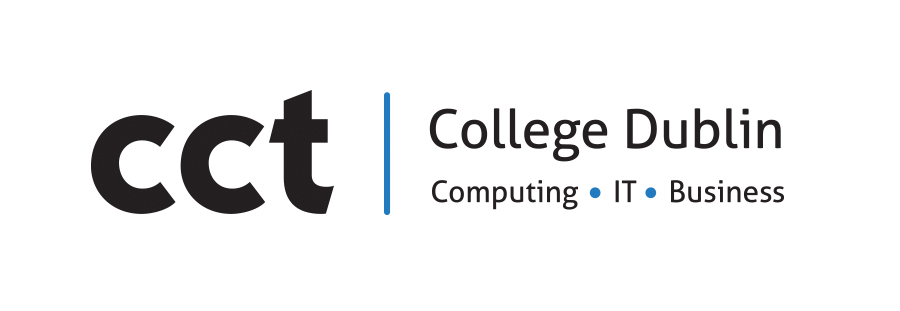

Diploma in Artificial Intelligence and Working into the Future Course Overview
The Diploma in Artificial Intelligence and Working into the Future is designed for learners seeking to develop their knowledge, skills and competence in the area of AI. This Special Purpose Diploma in AI aims to produce graduates with a clear understanding of AI and its underlying concepts and components, which are required by companies operating in this field today, and the ability to continue to develop knowledge, skill and competence to remain competitive and employable in an ever-advancing sector. Learners will engage with the opportunity to assimilate knowledge within an industry focused learning environment. Graduates of this programme will be qualified to fill professional roles at entry or junior level positions in IT and Artificial Intelligence development related industries, and to progress beyond these roles by developing the knowledge, skills and competencies skills learned in the programme curriculum. The graduate will also be prepared to pursue further academic studies at NFQ level 7 or above.
The programme utilises a carefully designed programme schedule with modules focused on Artificial Intelligence topics and their future direction. The design and development of modules within this programme were informed by significant industry consultation, particularly from Microsoft and its partner network. Industry-initiated real-world problems will be provided by our industry contacts and used as the context for planning and designing assessment solutions, as well as being an aid for problem-solving sessions.
The programme aims to provide learners with a progression pathway to professional roles at entry or junior level in the general area of Artificial Intelligence as well as the option to further their education in the area. In addition to the mathematical and associated technical skills, which will be fostered during the participants studies, transferable skills that will be developed throughout the programme via the varied teaching and assessment methods include: critical analysis, advanced evaluation, self-analysis and personal reflection, problem solving, communication skills, team management and group-work and professionalism.
Read more about the Diploma in Artificial Intelligence and Working into the Future below:
Strategic Business & Professional Development A
This module introduces the role of the professional in the IT industry, covering communicating technical information, choosing appropriate tools for organisational needs and taking codes of practice into consideration. Students will be introduced to concepts, tools and requirements with discussion and application of these in a professional context. The skills acquired in this module will contribute to the content of ‘Strategic Business & Professional Development B’ and will be applied across all modules in this programme.
Ethics, Integrity and Bi as in AI
This module considers the ethical integrity, biases, transparency and fairness when interacting with AI systems. Students will learn about ethics and how they apply to A.I., its design and development. Bias, fairness, transparency and accountability will also be discussed.
Principles of Programming
This module introduces fundamental programming concepts in order to design and implement solutions to problems. Students will be introduced to the foundational concepts of programming and will apply these skills. This module underpins the learning for the course of study.
AI Concepts for Problem Solving
The module will walk students through the broad fundamental concepts and techniques of A.I. and the different A.I. approaches. The module covers the definition of A.I., history of A.I., different levels of A.I., and problem solving approaches. Learners will assess and apply A.I. techniques to solve problems based on real world scenarios. Learners will be able to identify the most suitable A.I. solution for a given application or task.
Machine Learning Tools
This module will provide the learner with an appreciation of how to evaluate the suitability of knowledge representation schemes, balance competing features/requirements and make informed design decisions. Students will learn about the tools, methods, learning types and languages in application to A.I.
Visualisation Techniques for AI
This module allows the efficient and effective communication of vast quantities of data, offering rapid insights that would otherwise be difficult or impossible with numerical presentation. This module will provide the learner with the skills needed to present a variety of different types and volumes of data in a manner that provides the maximum insight and understanding to the viewer.
Big Data Analytical Methods
The ability to store and process data at large scale is becoming an increasingly important part of data analytics. The aim of this module is to provide the learner with the necessary knowledge and skill to be able to design and implement storage, processing and machine learning solutions that are capable of scaling to vast quantities of data. Students will learn about big data, its processing, analytics and storage on SQL/ NoSQL databases. The module builds on the skills and knowledge the learner acquired in previous modules, and enables them to propose and formulate solutions to a variety of real-world big data problems.
Strategic Business & Professional Development B
This module continues on from ‘Strategic Business & Professional Development A’. Complex problems are further investigated, such as the choice and application of tools and techniques, taking professional codes of practice into consideration. Students will be introduced to concepts, tools and requirements with discussion and application of these in a professional context. The skills acquired in this module will be applied across all modules in this programme.
Admission to this the Diploma in Artificial Intelligence and Working into the Future is through one of the following:
Evidence of prior learning, including experiential learning,
or
Possession of an NFQ level 5 award, including leaving certificate, FET award, or equivalent.
In addition, all applicants must evidence competence in mathematics equivalent to O6 standard in leaving certificate and competence in the use of IT. Basic computer literacy is not sufficient for this programme.
International applicants whose first language isn’t English must demonstrate a minimum competency in the English
Language of CEFR B2+.
Applicants are encouraged to apply for entry based on prior learning (RPL) or prior experiential learning (RPEL) in line with the College policy. The College will thoroughly assess applications received through RPL and RPEL to ensure that candidates are able to evidence learning to an appropriate standard – normally the framework level equivalent to the direct entry qualification requirement and demonstrate potential to succeed and benefit from the programme.
Those who are in employment/working :
For eligible applicants who are currently in employment/working 90% of the tuition fees will be covered by the HEA through Springboard+ and the remaining 10% is payable by the student or their employer.
The full fee for this course is €4,975 so for successful applicants who are in employment €497.50 will be payable once you have been offered a place and before you enrol on your Springboard+ course.
Those who are unemployed, formerly self-employed or ‘Returners’:
This course is free for eligible applicants who are unemployed, formerly self-employed or who are classified by Springboard+ as ‘Returners’ or ‘Homemakers’.
Application for this funded Diploma in AI and Working into the Future commencing September 2025 has to be made via the Springboard Courses Website.
All QQI accredited programmes of education and training of 3 months or longer duration are covered by arrangements under section 65 (4) of the Qualifications and Quality Assurance (Education and Training) Act 2012 whereby, in the event of the provider ceasing to provide the programme for any reason, enrolled learners may transfer to a similar programme at another provider, or, in the event that this is not practicable, the fees most recently paid will be refunded.


